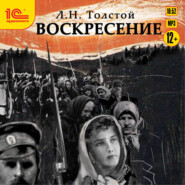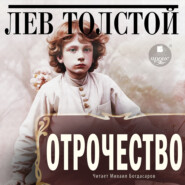По всем вопросам обращайтесь на: info@litportal.ru
(©) 2003-2024.
✖
A Russian Proprietor, and Other Stories
Настройки чтения
Размер шрифта
Высота строк
Поля
The sick woman dropped her head in token of assent. "O God! pardon me a sinner," she whispered.
The cousin went out, and beckoned to the confessor. "She is an angel," she said to the husband, with tears in her eyes. The husband wept. The priest went into the sick-room; the old lady still remained unconscious, and in the room beyond all was perfectly quiet. At the end of five minutes the confessor came out, and, taking off his stole, arranged his hair.
"Thanks be to the Lord, she is calmer now," said he. "She wishes to see you."
The cousin and the husband went to the sick-room. The invalid, gently weeping, was gazing at the images.
"I congratulate you, my love," said the husband.
"Thank you. How well I feel now! what ineffable joy I experience!" said the sick woman, and a faint smile played over her thin lips. "How merciful God is! Is it not so? He is merciful and omnipotent!" And again with an eager prayer she turned her tearful eyes towards the holy images.
Then suddenly something seemed to occur to her mind. She beckoned to her husband.
"You are never willing to do what I desire," said she in a weak and querulous voice.
The husband, stretching his neck, listened to her submissively.
"What is it, my love?"
"How many times I have told you that these doctors don't know any thing! There are uneducated women doctors: they make cures. That's what the good father said… A shopkeeper… send for him"…
"For whom, my love?"
"Good heavens! you can never understand me." And the dying woman frowned, and closed her eyes.
The doctor came to her, and took her hand. Her pulse was evidently growing feebler and feebler. He made a sign to the husband. The sick woman remarked this gesture, and looked around in fright. The cousin turned away to hide her tears.
"Don't weep, don't torment yourselves on my account," said the invalid. "That takes away from me my last comfort."
"You are an angel!" exclaimed the cousin, kissing her hand.
"No, kiss me here. They only kiss the hands of those who are dead. My God! my God!"
That same evening the sick woman was a corpse, and the corpse in the coffin lay in the parlor of the great mansion. In the immense room, the doors of which were closed, sat the clerk,[94 - diachók.] and with a monotonous voice read the Psalms of David through his nose.
The bright glare from the wax candles in the lofty silver candelabra fell on the white brow of the dead, on the heavy waxen hands, on the stiff folds of the cerement which brought out into awful relief the knees and the feet.
The clerk, not varying his tones, continued to read on steadily, and in the silence of the chamber of death his words rang out and died away. Occasionally from distant rooms came the voice of children and their romping.
"Thou hidest thy face, they are troubled; thou takest away their breath, they die and return to their dust.
"Thou sendest forth thy Spirit, they are created; and thou renewest the face of the earth.
"The glory of the Lord shall endure forever: the Lord shall rejoice in his works."
The face of the dead was stern and majestic. But there was no motion either on the pure cold brow, or the firmly closed lips. She was all attention. But did she perhaps now understand these grand words?
IV
At the end of a month, over the grave of the dead a stone chapel was erected. Over the driver's there was as yet no stone, and only the fresh green grass sprouted over the mound that served as the sole record of the past existence of a man.
"It will be a sin and a shame, Seryóha," said the cook at the station-house one day, "if you don't buy a gravestone for Khveódor. You kept saying, 'It's winter, winter,' but now why don't you keep your word? I heard it all. He has already come back once to ask why you don't do it; if you don't buy him one, he will come again, he will choke you."
"Well, now, have I denied it?" urged Seryóha. "I am going to buy him a stone, as I said I would. I can get one for a ruble and a half. I have not forgotten about it; I'll have to get it. As soon as I happen to be in town, then I'll buy him one."
"You ought at least to put up a cross, that's what you ought to do," said an old driver. "It isn't right at all. You're wearing those boots now."
"Yes. But where could I get him a cross? You wouldn't want to make one out of an old piece of stick, would you?"
"What is that you say? Make one out of an old piece of stick? No; take your axe, go out to the wood a little earlier than usual, and you can hew him out one. Take a little ash-tree, and you can make one. You can have a covered cross. If you go then, you won't have to give the watchman a little drink of vodka. One doesn't want to give vodka for every trifle. Now, yesterday I broke my axletree, and I go and hew out a new one of green wood. No one said a word."
Early the next morning, almost before dawn, Seryóha took his axe, and went to the wood.
Over all things hung a cold, dead veil of falling mist, as yet untouched by the rays of the sun.
The cast gradually grew brighter, reflecting its pale light over the vault of heaven still covered by light clouds. Not a single grass-blade below, not a single leaf on the topmost branches of the tree-top, waved. Only from time to time could be heard the sounds of fluttering wings in the thicket, or a rustling on the ground broke in upon the silence of the forest.
Suddenly a strange sound, foreign to this nature, resounded and died away at the edge of the forest. Again the noise sounded, and was monotonously repeated again and again, at the foot of one of the ancient, immovable trees. A tree-top began to shake in an extraordinary manner; the juicy leaves whispered something; and the warbler, sitting on one of the branches, flew off a couple of times with a shrill cry, and, wagging its tail, finally perched on another tree.
The axe rang more and more frequently; the white chips, full of sap, were scattered upon the dewy grass, and a slight cracking was heard beneath the blows.
The tree trembled with all its body, leaned over, and quickly straightened itself with a fearful shudder on its base.
For an instant all was still, then once more the tree bent over; a crash was heard in its trunk; and tearing the thicket, and dragging down the branches, it plunged toward the damp earth.
The noise of the axe and of footsteps ceased.
The warbler uttered a cry, and flew higher. The branch which she grazed with her wings shook for an instant, and then came to rest like all the others with their foliage.
The trees, more joyously than ever, extended their branches over the new space that had been made in their midst.
The first sunbeams, breaking through the cloud, gleamed in the sky, and shone along the earth and heavens.
The mist, in billows, began to float along the hollows; the dew, gleaming, played on the green foliage; translucent white clouds hurried along their azure path.
The birds hopped about in the thicket, and, as though beside themselves, voiced their happiness; the juicy leaves joyfully and contentedly whispered on the tree-tops; and the branches of the living trees slowly and majestically waved over the dead and fallen tree.
A PRISONER IN THE CAUCASUS
I
A Russian of rank was serving as an officer in the army of the Caucasus. His name was Zhilin.
There came to him one day a letter from his home. His aged mother wrote him: "I am now getting along in years, and before I die I should like to see my beloved son. Come and bid me farewell, lay me in the ground, and then with my blessing return again to your service. And I have been finding a bride for you, and she is intelligent and handsome and has property. If you like, you can marry and settle down together."
Zhilin cogitated, "It is very true: the old lady has been growing feeble; maybe I shall not have a chance to see her again. Let us go, and if the bride is pretty – then I might marry."
He went to his colonel, got his leave of absence, took his farewell of his comrades, gave the soldiers of his command nine gallons[95 - Four vedros, equivalent exactly to 8.80 gallons.] of vodka as a farewell treat, and made his arrangements to depart.

















